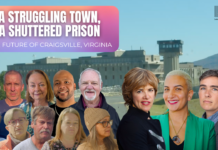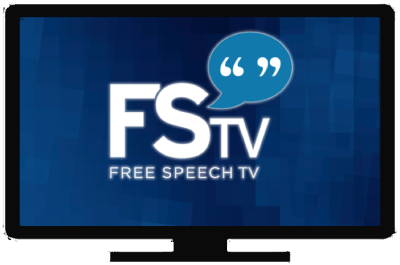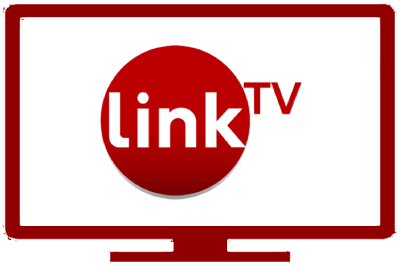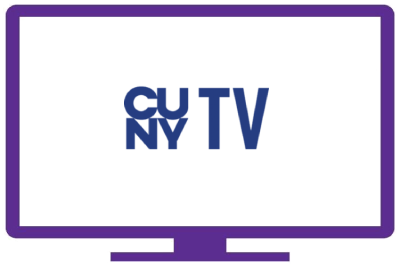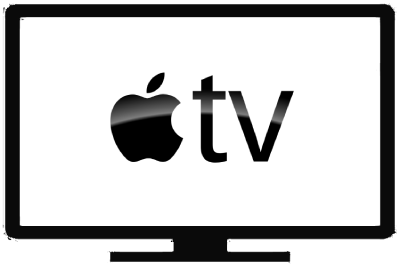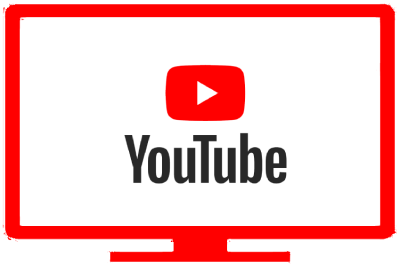In his recent graphic memoir “ZODIAC: A Graphic Memoir”, the renowned artist Ai Weiwei writes that artists should “ignite stories”, “fight for freedom” and “help us hope.” Over his long and defiant career, he has used his art in a wide variety of media to do just that. His past works such as “Sunflower Seeds” and “Remembering” confronted issues of censorship and human rights abuses in China; in a recent show in London, he asked questions of an AI Chatbot for his project “Ai vs AI”, including “Is there hope for peace?” Earlier this year, he faced criticism for his expressions of support for Palestinian rights and had a show in London canceled. In this wide-ranging conversation with Laura Flanders, they discuss the role of the artist and ask why is “Power so afraid of art and poets?” As attacks on free speech, surveillance and displacement continue to impact so many of us, how do we keep the doors of our minds open to possibility? And how can art and artists help lead transformation? All that, plus a commentary from Laura on asking questions.
“I’m not this kind of very active activist. I’m just being forced to act . . . But I’m proud of doing that because that is the meaning of life, to give dignity to life itself . . .” – Ai Weiwei
“The real fear for me is we lost ability to ask the question. We lost our memory, we lost our sense of caring compassion . . .” – Ai Weiwei
LAURA FLANDERS & FRIENDS
Ai Weiwei: How Do We Save Our Humanity?
LAURA FLANDERS: How do we keep the doors of our minds open to possibility and to fresh questions in a time when so many avenues to peace, justice, health, and fresh thinking seemed cut off or out of reach? In his recent graphic memoir titled “Zodiac,” the world renowned Artist, Ai Weiwei, writes that artists have a special role. They should ignite stories, fight for freedom, and help us hope. Over his long defiant career, Ai Weiwei has done just that using his art in a wide variety of media. His works such as “Sunflower Seeds” and “Remembering” confront issues of censorship and human rights abuses in China. In a recent show, he asked questions of an AI chatbot among which was, is there hope for peace? Ai Weiwei has faced censorship by the Chinese government and also in the West. He had a show canceled not so long ago in London after he expressed support for Palestinian rights. In 2011, he was arrested at the Beijing Airport and held for 81 days without charge. He’s been living in exile since 2015. He’s joining me today from where he stays now with his family in Portugal. And it is my great honor and privilege to welcome to our program Ai Weiwei.
AI WEIWEI: Thank you.
LAURA FLANDERS: It is such a pleasure to have you here on the program with me. And I’m gonna ask you the question that I begin all of our conversations with simply to perhaps ground ourselves. Who or what is uppermost in your mind or on your heart as we start to speak today?
AI WEIWEI: Well, at this moment, nothing are more, we cannot really erase the images of the people in Palestine. This is, nobody can really erase those images. And we never had a time like this, not in my life and not in anybody’s life. The images has been so massively covered and brutally showing in front of the public.
LAURA FLANDERS: You just wrapped up a project in London that beamed on the lights of Piccadilly Circus in which you asked an artificial intelligence chatbot about the meaning of life, “81 Questions”. It was described I saw as an 81-day quest for enlightenment. Can you describe that project a little bit more and what you made of AI’s answers and were you enlightened by any of it?
AI WEIWEI: First, I think in this very critical historical moment, every answer needs to be re-asked and we have to restart again with humanity, with very basic essential questions. To ask questions is the starting point to seeking for the truth and to find out who we are. And very often we forget about those answers. So I use the possibility to ask the questions to AI, happens my name is a little bit similar with AI. So yes, we both give answers. I would give answers before AI gave the answer to see how much it matches and how much difference we have. And I think that is the point. Everybody need to ask a question or ask dozens of questions about who we are and where we are going.
LAURA FLANDERS: And did you get enlightened? How did you compare with AI?
AI WEIWEI: I would say AI does 80 to 90% of the job. You know, the answer could be matched in many ways but one needs the individual thinking to make judgment. I think AI is not capable because AI is just collecting information.
LAURA FLANDERS: Do you have hope or fear around technology or both?
AI WEIWEI: In speaking of technology, I think that technology liberates people in every case. Every individual seems they are so much involved and so much drawn toward or by the technology. You cannot stop them, everybody, it’s impossible. It has almost become like air or water. So, but what will come out of it, nobody knows. And still, technology will not just develop as technology, but stills need someone have a brain and have emotion, have ability to make technology become humanized. But still it need to be employed by the right people, not by the wrong people. Still can be very evil can be very dangerous to humanity.
LAURA FLANDERS: The other thing, AI is not as real in terms of living in a body with a human type physical experience. Your 81 questions of course based on your 81 days of imprisonment, how do you think those days changed you? And now do you think of yourself as free? Do you feel free?
AI WEIWEI: I never feel free no matter what in this kind of confinement or outside the confinement. The inner struggle is not just with the existing condition, but also we’re seeing ourselves. How do we make judgment? How do we make a move or not make a move? So those things are really, we have to ask every second. So in that sense, freedom is only intention to get free but rather you can never really achieve it.
LAURA FLANDERS: You write a lot though about the function and the role of the artist in “Zodiac” and elsewhere you’ve addressed this question. What do you think is your job?
AI WEIWEI: I think that my job, if there is a job and even I’ve never been really hired, but still there’s a duty. Duty means, relates to if you think you have any rights, you would have a responsibility and you have to pay for whatever you get. You know, I’m a person, I eat well, I’ve been treated very well. And even with all those difficulties still I consider we’re all lucky. We all get more than we deserved. So, who’s gonna pay for that? I think all of things I can do as an individual is defending humanity and defending basic human rights, freedom of speech. Those things are so crucial.
LAURA FLANDERS: There’s something about artists though that very much scares and concerns certain sorts of governments, particularly dictatorial ones or authoritarian ones, ones deeply invested in control. What is it do you think about artists and what they do that’s so concerns those kinds of regimes?
AI WEIWEI: I think we always think we are born afraid but that is not, it’s not true. Our education, our sense of safety or where we have to behave like the others. We have to get by with these kind of mainstream ideologies or propagandas. So there’s all different kind censorship. Some are very obvious like in the authoritarian states, they clearly tell you certain topic you cannot talk about. If you talk about, you touch the red line and you’re dead, you’re not gonna survive. So it is very clear. But I gradually found out in the west in the so-called democratic society or land of freedom, which we also have a lot of taboos, you cannot talk about, people avoid to talk about. Not just in ordinary situation, but even in the bar or in the coffee shop, in university, in education, in mainstream media. That means we are not encouraging people to have freethinking and judgment. And that is the ground to produce Nazis or hypocrites. And that can come to political disaster. And of course we see a lot of political disaster, one after another in very different locations.
LAURA FLANDERS: So I’m hearing then that the role of the artist is to shove us out of our complacency, nudge us out of our kind of go along self-censorship.
AI WEIWEI: Artists are privileged in a way because they have no job, nobody hired them. They don’t get paid anyhow unless they are so crazy about their fame or to make some kind of strange amount of money. So basically the rule of artists is about freethinking and it is all about making mistakes because the mistakes, the consequences only you will pay for the mistakes. It is not that you let anybody else pay. That’s the privilege of the artist. That means you are free, you have much more space. But in today’s society it’s not true. And most artists, I will say are so much worried about their reputation, about being accepted by large institutions or exhibitions or So, and to be collected. So, those issues would affect their, would guide them not to express their inner ideas.
LAURA FLANDERS: We have some of the same problems with journalism, but we can get to that. I hear your father in a sense, I think of him and you wanna tell our audience a little bit about him. If he looked at you today and heard you talking about freedom, what do you think he would say? I mean he experienced government suppression very clearly. You’re talking about something a little more subtle perhaps, but what would he, would he be surprised by the situation we find ourselves in today?
AI WEIWEI: I think my father lived his life under very strong political censorship and he paid his lifetime for that. You know, he was exiled, he was in jail not for one year but over 20 years. And I grew up with him. I don’t think he would be surprised for me to fight, to defend the freedom of speech. And I think he would be proud if he knows I’m doing that but of course he will be worried because he knows this kind of condition in most cases, you cannot win.
LAURA FLANDERS: We started by talking about those images from Gaza. How do you decide to work on subjects of migration or incarceration, or as you did the naming of the children killed in the earthquake in Sichuan?
AI WEIWEI: I made my, how do you say, my comment or it’s kind of commentary only because those topic I cannot avoid to escape from. Very often people would ask me, what’s your opinion? So I have to be honest to give out my opinion. I cannot say I don’t have any opinion about it. But I’m not this kind of very active activist. I’m just being forced to act. But I’m proud of doing that because that is the meaning of life, to give dignity to life itself rather than anything else.
LAURA FLANDERS: But you were pushed to focus on migrants to focus?
AI WEIWEI: Yes. I was a migrant, even in my country my father was exiled, so we always been discriminated. We never had a place we can call home. So I’m always wondering why those people have to leave their home. It doesn’t make any sense. Even if poor they will not leave their home willingly. Just take their children, do all those risk across the ocean and go to a land with no language, no religious similarity, and how can they survive? It’s not possible. So I’m always wondering how that would happen. So that kind of curiosity leading me to want to know more about them and about how the other people look at them. What is the political policies or positions of the people handling those people?
LAURA FLANDERS: When you made your film, “Flow..”
AI WEIWEI: “Human Flow,” yes.
LAURA FLANDERS: “Human Flow,” the migration, the numbers of migrants and people displaced, I looked it up was like half of what it is today. And you make the point that the number of borders was much more than it had been at the end of the Cold War so-called, the bringing down of the Berlin Wall. Today, the question of home and homeland is up again. And I wonder, looking to Palestine, looking to Israel, looking all around the world as we see people moving and fighting for a place to call home, what is home to you?
AI WEIWEI: Too late to find home for me. I have been in China for a very long time, over 40 years, I couldn’t call it home. I speak Chinese language. My father is most respectful poet today and I cannot call it home because we just do not have same kind of ideology and values we can share. And if I cannot speak freely in a place that you don’t call it home. And yes, I’ve been United States for 12 years, then I’ve been Europe almost 10 years now. I still feel quite foreign in outside China. So I will not think there will be a location I called home, but which fine. They give me opportunity to know more, to know more difficult situations and to know there’s a lot of people, they’re just not privileged and the whole world are facing a dramatic change. And this situation getting more common.
LAURA FLANDERS: Well, so maybe this is a positive not to diminish people’s right not to be displaced and forcibly moved. But we spoke to Angela Davis not so long ago and I asked her about nation states and whether this idea that we have of a nation state is maybe out of date And we need to reinvent. And I think I’d ask you that same question. How do you relate to the idea of a state? You’ve been subject to the power of one, You saw your father be persecuted by one as well. Maybe we need something else. Maybe we just need to call the planet home or our friends or family or some, our art.
AI WEIWEI: Well, I think sooner or later we have to call this, we have to recognize the planet is the only home. Because our fate really bond together with this dramatic change, either environmental changes, resource limit, and also war can be dramatically happening. So there will be rethinking about humanity as one. And to rethinking about we are all share the same planet. And of course the homes, so-called the borders, the nation often divided by the different historical impact, religion or race or different kind of development, depending on the speed. But gradually those problems shows we have to have the unity at least conceptually we have to think humanity as one.
LAURA FLANDERS: I think the birds where you are like what you just said ’cause they started singing more loudly. And you have made me think of how often nature comes up in your work. What do you get from the animals that surround you, the relationship that you have to nature and do you think of yourself, you’re known for using a lot of technology as well, how do you think of your relationship with nature in these times and how does it express itself in your art?
AI WEIWEI: I think it’s, I will feel ashamed if I talk about nature. We have so much, so little time just to look at what is around us, just grass or wood or birds or cats or dogs, whatever is there is so rich and we have so little time. We have no patience and we quickly rush our life away before we know all those neighbors and all those fantastic creatures. We know so little about them. We are, as human we are too arrogant. We think we are, we controls the universe, which is not true. It’s just we only have been here for a very short time as long as we don’t ruin it and we already very fortunate.
LAURA FLANDERS: Do you have advice today to creative artists and others who’ve been facing censorship over their work around Gaza, around the tragedy affecting Palestinians today?
AI WEIWEI: Things are so simple. Do we want to see our children, our families, or even friends to facing such a difficulty and not to say, “Hey, stop it.” No war, no war in Israel or Palestine situation, no war in Russian or in Ukraine situation or any place. Do not produce those arms. Do not sell the arms from United States. Do not pay the arms from United States. US cannot supporting the war anymore.
LAURA FLANDERS: You paid a little price, at least, for just a tweet. There are others who faced much more.
AI WEIWEI: What I did is nothing compared to… You know, people I know Gaza they lost 20 members of their family. They’re just journalists and there could be a doctor and could be someone. And they have to argue about, hey, this is genocide. They have to argue, they don’t want to spell out these words even. And they will say, okay, this is too much. Well, if we don’t see that, can we look at the mirror? Can we look at ourself? Who am I? And that is can be totally wrong. We are still existing in this world, not speak out the truth.
LAURA FLANDERS: To many people not thinking about it and not knowing perhaps is more attractive than the questions that we need to be asking if we’re to move forward. What fear do you have if we don’t ask those questions, the right questions in the right way, or often enough of enough of us?
AI WEIWEI: The real fear for me is we lost ability to ask a question. We lost our memory, we lost our sense of caring, compassion or we lost this sensitivity. We’ve become, already become inhuman.
LAURA FLANDERS: Do you think we’re on the verge of that?
AI WEIWEI: I think very much so, always there’s a big part for the world. They just cannot make right judgment. Then that will lead our whole humanity into disaster after disaster.
LAURA FLANDERS: Well, we have to close. I’ve loved talking with you and I will ask you the question I ask all of my guests, which is what do you think the story will be that the future tells of this moment, of now?
AI WEIWEI: I think my future is now. You are my future.
LAURA FLANDERS: I love it. Ai Weiwei pleasure to talk with you. Thank you for spending this time with us.
AI WEIWEI: I am so fortunate to get to know you. Thank you.
LAURA FLANDERS: Well, it’s mutual. Thank you. I enjoyed my conversation with Ai Weiwei, as you can probably tell and there is much more of it. In the uncut version we talk a bit about his cats. He had 40 of them when he lived in China and one learned how to open doors for itself. Ai Weiwei is very impressed with the genius of that cat as well he should be but I’m particularly interested in those other 39. Were they happy enough to sit back and let that one do their door opening for them or were they simply never struck by the question of their confinement? As I think about questions, I’m struck by the actions of so many Jewish Americans this Passover who took their Seder ritual, which is all about asking questions out of private spaces and into the streets where they raised real questions about liberation and freedom and justice for all, and the place that each one of us has in that project. If you appreciate this sort of real question asking and answering in public, then we’ve got a lot of good programming ahead for you here on Laura Flanders and Friends. If you want to get your own access to the uncut version of today’s show or every show, then you can through a subscription to our free podcast all the information’s at our website. And in the meantime, till the next time, stay kind, stay curious. For Laura Flanders and Friends, I’m Laura. Thanks for joining us.
For more on this episode and other forward-thinking content, subscribe to our free newsletter for updates, my commentaries, and our full uncut conversations. We also have a podcast, it’s all at lauraflanders.org.
• Ai Weiwei: Censorship in West ‘exactly the same’ as in Mao Zedong’s China, by Piers Mucklejohn, Standard-UK, February 4, 2024 Read Here
LTJ Xperience remix of “Working On It” Bread & Souls featuring Rich Medina produced by Mark De Clive Lowe from the Bread & Souls: A Family Gathering, Chapter 1, courtesy of Mashi Beats. Listen & Learn More
Laura Flanders & Friends is committed to making our programming, website and social media as accessible as possible to everyone, including those with visual, hearing, cognitive and motor impairments. We’re constantly working towards improving the accessibility of our content to ensure we provide equal access to all. If you would like to request accessibility-related assistance, report any accessibility problems, or request any information in accessible alternative formats, please contact us.








